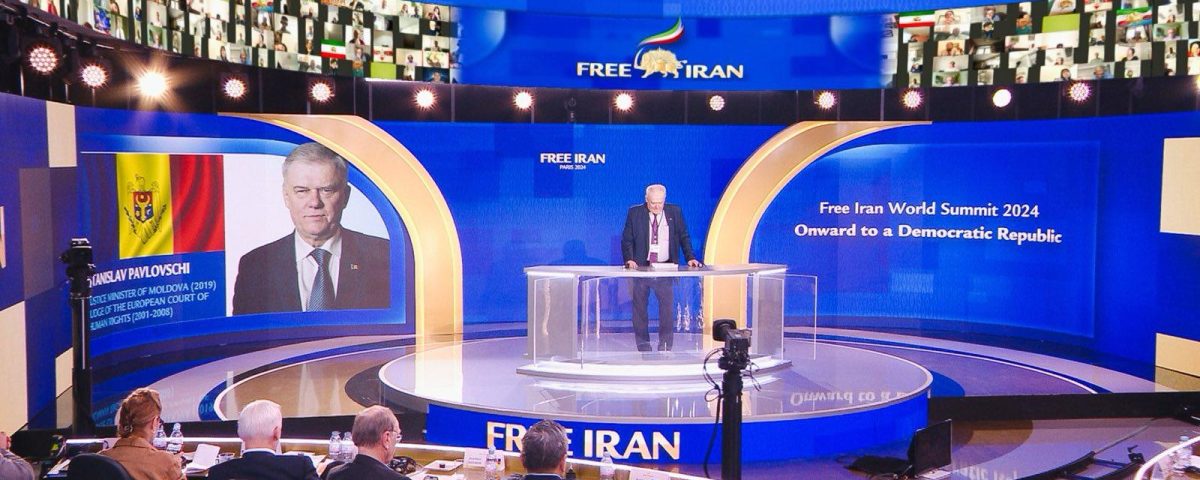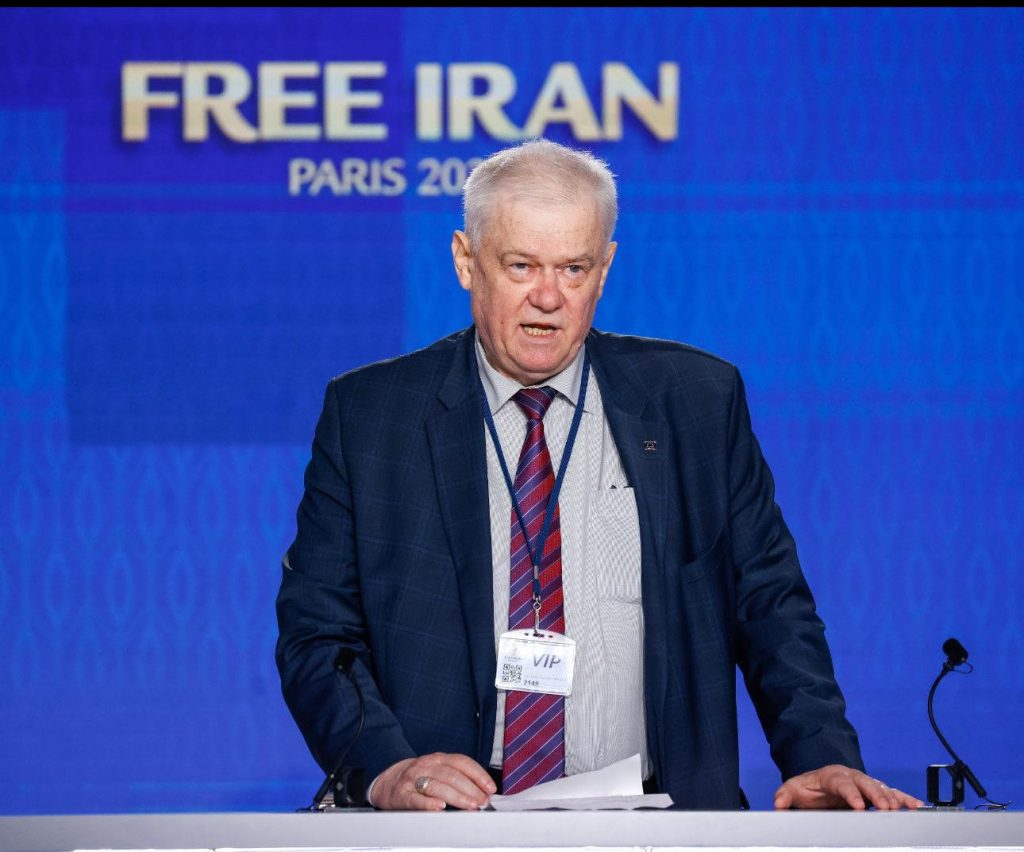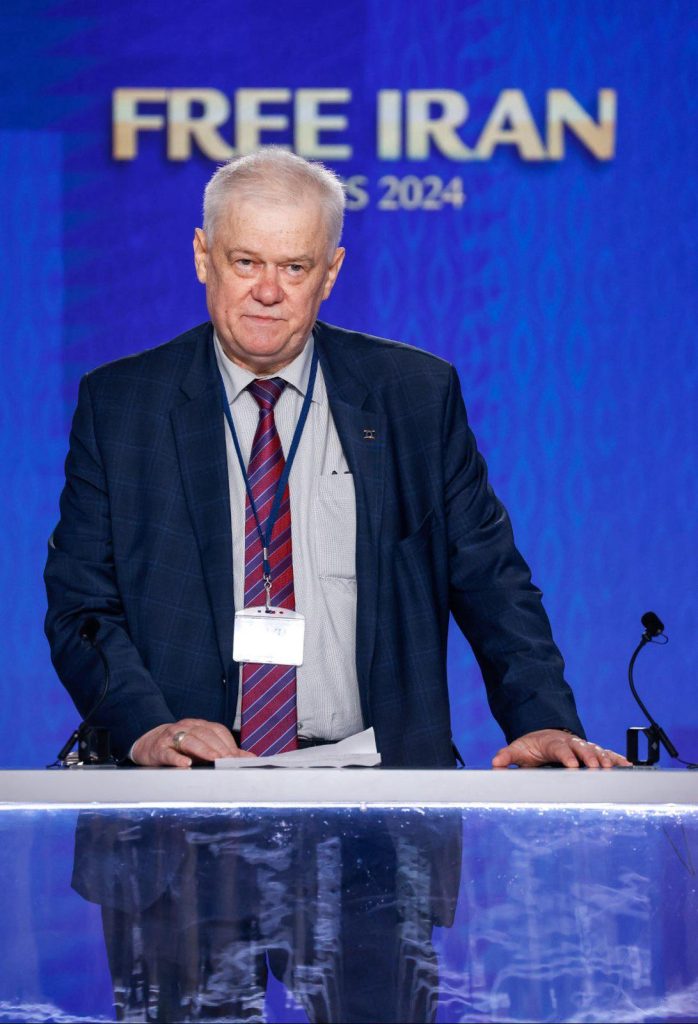
Paris, July 1, 2024 – The Free Iran 2024 World Summit, held in Paris from June 30 to July 1, 2024, brought together distinguished guests, including human rights advocates and former officials, to discuss the ongoing human rights crisis in Iran. Among the speakers was Stanislav Pavlovschi, a former judge of the European Court of Human Rights and Moldova’s former Minister of Justice.
Pavlovschi opened his remarks by emphasizing his legal background and focus on human rights, expressing grave concern over the deteriorating situation in Iran.
“The Islamic Republic of Iran’s strict limitations on human rights deteriorated in various aspects throughout the year 2023,”
he noted.
“Women continued to face discrimination, including through enhanced means for enforcing the mandatory dress code, which led to acts of civil disobedience. At least 834 citizens were executed during the year, according to the UN.”
“The Judiciary and the court system are far from being objective,”
Pavlovschi stated. He pointed to the lack of judicial independence and fairness, citing trials where verdicts seemed predetermined and defendants were denied proper legal representation.
“No wonder that the previous head of the Judiciary, Ebrahim Raisi, who died in the helicopter crash in May, was a member of the ‘death commission’ in Tehran, during the 1988 massacre of thousands of political prisoners.”
Pavlovschi criticized the Iranian government’s misuse of its judiciary to suppress opposition abroad. He recounted the initiation of a sham trial for 104 members of the Iranian democratic opposition, mainly residing in Europe and Albania.
“The judge began the first court session by saying that we were going to try these 104 ‘terrorists’, effectively passing judgment on them before the start of the trial,”
he said. He condemned the government’s refusal to allow European and international lawyers to defend these dissidents, asserting that the trial aims to obtain Interpol Red Notices to extradite them to Iran.
“As a former international judge, I know very well that any legitimate trial would require a presumption of innocence and free access to lawyers. But it is clear that the government is not interested in the rule of law; rather, it is trying to misuse the law to extend its crackdown to its opponents living abroad.”
Pavlovschi urged European governments and their legal and security apparatuses to reject any extradition requests from Iran stemming from this trial. He also condemned the Iranian government’s continued transnational repression and terrorism aimed at intimidating or retaliating against individuals outside Iran, including political opponents, human rights defenders, journalists, and supportive European officials.
“The abuses committed by the government against the Iranian people are very serious and extensive. The list of these abuses is very long, but the ones I have just described are the most dangerous and require an immediate reaction from the international community,”
Pavlovschi concluded.
The conference underscored the urgent need for global awareness and action against Iran’s human rights violations, with calls for the international community to stand in solidarity with the Iranian people.


